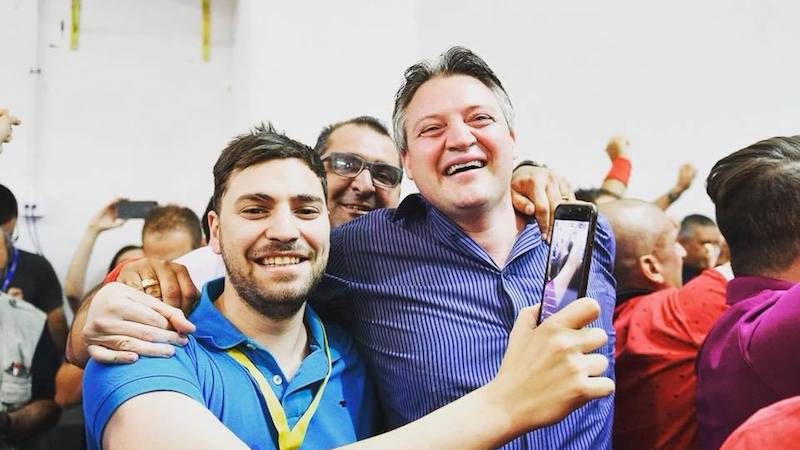The late Labour Party strongman, and former Prime Minister of Malta Dom Mintoff once said: “Those who are not with us are against us”.
Decades later, the legacy of his words remain entrenched in the tribal and clientelistic political landscape of the country, according to a recent study from Leiden University in The Netherlands.
Entitled ‘How Smallness Fosters Clientelism: A Case Study Of Malta’, the report builds on previous work undertaken by the late Jeremy Boissevain, the renowned anthropologist who conducted studies of the country between 1965 and 1974.
Political scientist Wouter Veenendaal, who authored the report, noted that the prevalence of tribalism, extreme party polarisation, and clientelism lead directly to the weakening of what are supposedly neutral institutions. This, in turn, seeks to reinforce the “all-powerful” position of the Maltese government.
Veenendaal found that these “ubiquitous features” of the Maltese political landscape has resulted in an extreme situation that breeds corruption and hinders the formation of the Maltese national identity.
The Party is supreme
Veenendall found that direct links existed between clientelism – the exchange of services or favours for political support – and other features such as executive dominance and impunity. He believes that this is directly linked to the small size of the country, and fosters a climate where individuals “develop an intricate knowledge of the partisan affiliations and loyalties of friends and family”.
This then nurtures an extensive network of potential influence and patronage between politicians and members of the public. Private, personal and political relationships become blurred and citizens expect that politicians will engage with them personally.
Politicians were found to behave in a way where they need to “establish themselves or reemphasise already established positions as a local patron, doing favours and trying to win friends”.
During his visit to Malta, Veenendaal observed the formidable pressure on politicians to bend to the will of constituents, yet noted that they showed little resistance to fulfilling requests for public sector jobs and building permits.
One minister even admitted to Veenendaal that there is an unwritten rule of sorts that “I voted for X so now she/he has to do something for me”.
As politicians penetrate the private lives of citizens, a situation arises where, as social scientist Godfrey Baldacchino puts it, “the presence, if not control, of the Party is supreme and complete”.
Voting for favours
The nature of the close relationships forged between candidates, politicians, and members of the public is suggested as one of the reasons why voter turnout is so unusually high. With figures regularly exceeding 90% participation, the report describes this as “extraordinary” in systems that do not enforce compulsory voting.
A politician interviewed for Veenendaal’s study said: “If my Party is in, I am going to get the favours. It is easier for me to get what I need. If my Party is not in, I am finished. So we have to vote”.
In Malta, voters have a vested interest in who wins the elections as the outcome of their favours and benefits, usually rests in the hands of their chosen candidate. The victory of a favoured politician or political party can mean years of privilege and opportunities, while a defeat could leave them stranded on the losing side of society, at risk of exclusion and victimisation for years to come.
Take the example of the 885 promotions that were doled out to members of the Armed Forces of Malta (AFM) during the 33-day long general election campaign in 2017. This was in addition to the similarly dubious promotions that took place shortly after Labour returned to power in 2013. The ombudsman produced a report on the matter, saying “it was a process designed to achieve a pre-ordained result”.
‘Near-total control of the State’
But once a party seizes power, voted in through its carefully nurtured network of clientelistic relationships, the executive dominance that they then wield is supreme. Veenendaal described the resulting scenario as a “near-total control of the State”.
These “vast and virtually unchecked” powers of the Maltese government penetrate every part of society through political appointments in the country’s institutions, including the judiciary. Just last week, the Prime Minister rushed through six new appointments to the judiciary in defiance of the Venice Commission’s recommendations.
A journalist who chose to remain anonymous in the study added that in a “normal democracy”, the changing of the government did not impact the legal system of federal government, but in Malta it changed everything.
A spokesperson from a local NGO added that the government decided who gets appointed into positions of power and that when you stop to look at it, you realise that “ok, the government controls everything”.
Corruption and impunity flourish
In a country where few can name the differences between the two parties, and there is “no space for critical thinking” it is no surprise that corruption reigns almost as supreme as the party in power.
The study described a country with a “weak media” where impunity is allowed to flourish due to the dependence of citizens on the politicians in power. Their will to hold them accountable is diminished and they turn a blind eye to obvious corruption, as long as their favours and quality of life are not impacted.
“Ok fine, we have a corrupt minister, but we are fine, we are happy,” said one journalist interviewed.
Citing the Panama Papers scandal and the fact that both the Prime Minister’s Chief of Staff Keith Schembri and Tourism Minister Konrad Mizzi were still in government positions, the study notes that the lack of accountability is a cause for concern.
The Maltese are yet to arrive at a situation where they can think freely, Veenendaal notes. Instead, they pin their hopes, wishes and dreams on their chosen Party, to reap the rewards of their loyalty. As a result, scandals can be dismissed as nothing more than partisan antagonism.
The vicious cycle of enablement, impunity and unethical politics is set to continue if citizens refuse to hold bad actors to account due to fear of falling out of favour.













